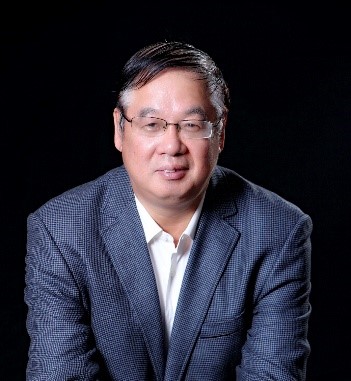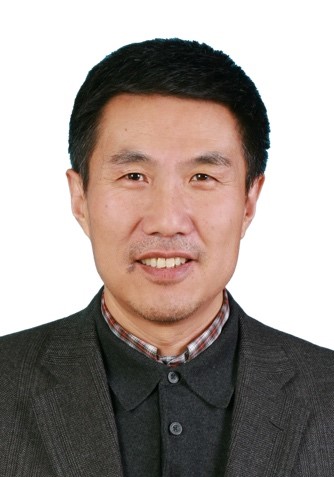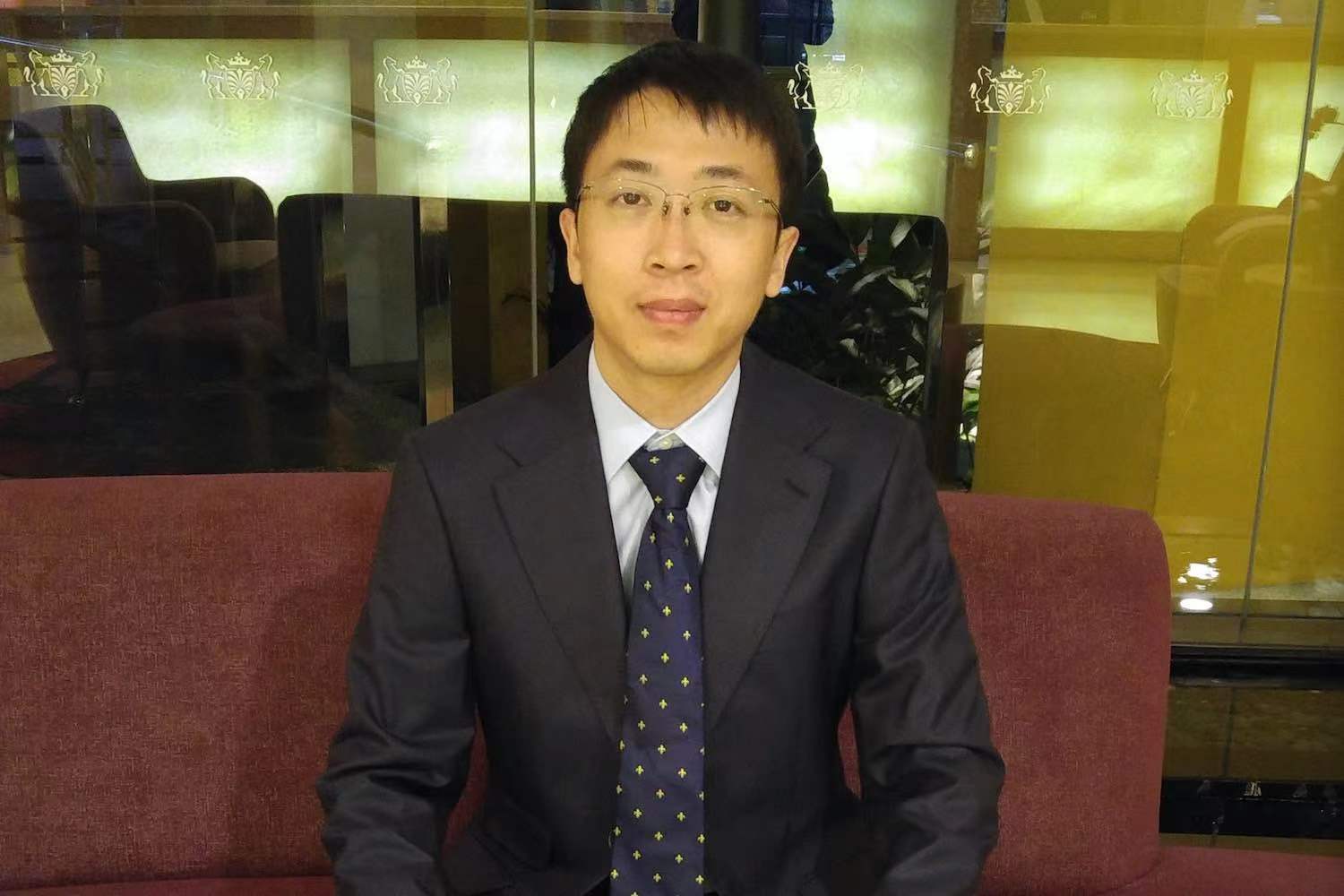Online Keynote: |
|
 |
Prof. Schahram Dustdar
IEEE Fellow | AAIA President and Fellow; ACM Distinguished Scientist, ACM Distinguished Speaker; Member of the Academia Europaea, Chairman of the Informatics Section; Full Professor, TU Wien, Austria; Head of the Distributed Systems Group (DSG) Title: "Edge Intelligence - a Research Roadmap" |
Bio:
Schahram Dustdar is Full Professor of Computer Science heading the Research Division of Distributed
Systems at the TU Wien, Austria. He holds several honorary positions: Francqui Chair Professor at
University of Namur, Belgium (2021-2022), University of California (USC) Los Angeles; Monash University
in Melbourne, Shanghai University, Macquarie University in Sydney, University Pompeu Fabra, Barcelona,
Spain. From Dec 2016 until Jan 2017 he was a Visiting Professor at the University of Sevilla, Spain and
from January until June 2017 he was a Visiting Professor at UC Berkeley, USA.
Abstract:As humans, things, software and AI continue to become the entangled fabric of distributed systems, systems engineers and researchers are facing novel challenges. In this talk, we analyze the role of IoT, Edge, and Cloud, as well as AI in the co-evolution of distributed systems for the new decade. We identify challenges and discuss a roadmap that these new distributed systems have to address. We take a closer look at how a cyber-physical fabric will be complemented by AI operationalization to enable seamless end-to-end distributed systems. |
|
Keynote I: |
|
 |
Prof. Huadong Ma Beijing University of Posts and Telecommunications | IEEE Fellow Title: "Toward Internet of Things with Endogenous Intelligence" |
Bio:Dr. Huadong Ma is a Professor of School of Computer Science, and Vice-Chair of Academic Committee, Beijing University of Posts and Telecommunications (BUPT), China. He is also Director of Beijing Key Lab of Intelligent Telecommunications Software and Multimedia, BUPT. He is Chief Scientist of the project “Basic Research on the Architecture of Internet of Things” supported by the National 973 Program of China from 2010 to 2013. He received his PhD degree in Computer Science from the Institute of Computing Technology, Chinese Academy of Science in 1995. His current research focuses on sensor networks and Internet of things, multimedia computing, and he has published over 400 papers in journals or conferences and 5 books on these fields. As a co-author, he got the 2019 Prize Paper Award of IEEE Transactions on Multimedia and the 2018 Best Paper Award from IEEE MultiMedia. He was awarded National Funds for Distinguished Young Scientists in 2009, the Natural Science Award of the Ministry of Education, China in 2017. He was/is an Editorial Board Member of the IEEE Transactions on Multimedia, IEEE Internet of Things Journal, and ACM Transactions on Internet of Things. He serves for Chair of ACM SIGMOBILE China, Director of CCF Technical Committee on IoT. He is IEEE/CCF/CAAI Fellow. Abstract:In this talk, first, we will introduce the long-term challenges of the development of IoT. Combining AI theory, then we will present some explorations and recent research progresses on intelligent sensing, intelligent transmission, and intelligent service in the IoT environment. In the future, endogenous intelligence will drive the revolution of IoT, we will discuss the open issues on IoT area, such as the theories and key technologies of human-like sensing, concise and intelligent networking for heterogeneous wireless network, and cognitive service. The breakthrough for solving the above problems will promote the development of Internet of Things. |
|
Keynote II: |
|
 |
Prof. Xiangyang Li University of Science and Technology of China | ACM Fellow, IEEE Fellow, ACM Distinguished Scientist Title: "Challenges and preliminary exploration of data element sharing and transaction circulation" |
Bio:Xiangyang Li is a professor and Executive Dean of the School of Computer Science and Technology, University of Science and Technology of China, Executive Minister of Information Intelligence Department, ACM Fellow, IEEE Fellow, ACM Distinguished Scientist. He is also the Former Co-chair of ACM China, Managing Director of ACM Council, winner of the Foundation's Outstanding Youth Fund, Chief scientist of the Internet of Things Security Project of the National Key Research and Development Program, and has served as assistant professor, associate professor and professor of Illinois Institute of Technology, EMC Visiting Chair professor at Tsinghua University, and visiting professor of Microsoft Research Asia. He received MS and PhD degree at Department of Computer Science from University of Illinois. He received a Bachelor degree at Department of Computer Science and a Bachelor degree at Department of Business Management from Tsinghua University. Professor Xiangyang Li has been engaged in research on Intelligent Internet of Things, Internet of Things and data security and privacy, data sharing and trade. Abstract:In the era of cloud computing and big data, the global data volume presents an explosive growth trend, triggering profound technological and commercial changes worldwide, becoming the focus of competition between countries and enterprises, and being designated as a new factor of production. Data resources are increasingly becoming a production factor and strategic asset of human society. The integration and application of cross domain data will generate immeasurable value and help promote innovative applications, such as intelligent medical treatment, situational cognition, precision marketing, intelligent monitoring, etc., which can significantly improve social and economic benefits. The realization of secure sharing and trading of big data will help break down industry information barriers, optimize and improve production efficiency, and deeply promote industrial innovation. However, due to the ease of data replication, difficulty in value quantification, difficulty in channel control, and user concerns about data security, how to convert the currently closed and hidden data sharing into open and public data circulation and trading has become one of the core challenges that need to be addressed in the era of big data and artificial intelligence, which urgently needs us to conduct corresponding research. In this report, I will share with you some challenges and scientific issues in the big data sharing and trading market, and introduce some of our recent explorations, including data authentication, quality assessment, value assessment and pricing, security and privacy protection, and so on. |
|
Keynote III: |
|
 |
Prof. Jie Xiong University of Massachusetts Amherst Title: "Wireless Sensing in the Era of IoT: Theories, Applications and Practical Challenges" |
Bio:Jie Xiong is a Principal Researcher at Microsoft Research Asia and a tenured Associate Professor in the College of Information and Computer Sciences, University of Massachusetts Amherst. Jie received his Ph.D, M.S and B.Eng degrees from University College London, Duke University and Nanyang Technological University respectively. Jie's Ph.D study was supported by Google European Doctoral Fellowship and he is the recipient of 2016 British Computer Society Distinguished Dissertation Award Runner-Up. His current research focuses on wireless sensing, mobile computing, smart IoT and cyber-physical systems. His research won multiple awards including SenSys '22 Best Paper Award, SECON '22 Best Paper Award, MobiCom '22 Best Paper Runner-up, MobiCom '22 Best Community Paper Runner-up, MobiCom '21 Best Paper Runner-up, UbiComp '21 (IMWUT '20) Distinguished Paper, MobiCom '20 Best Paper Honorable Mention, SenSys '19 Best Paper Candidate, SenSys '18 Best Poster and CoNEXT '14 Best Paper. His research is supported by NSF CAREER Award and NIH R01 Award. Abstract:Wireless technologies have achieved great success in data communication. In the last few years, wireless signals (e.g., WiFi) have been exploited for sensing purposes, enabling exciting applications such as passive localization, contact-free gesture recognition and vital sign monitoring. Although promising progress has been achieved, the potential benefits of wireless sensing are still limited by several fundamental issues including small sensing range and poor performance under device motions. In this talk, I introduce our recent research (i) on the theory side to enable wireless sensing under device motions for the first time and (ii) on the application side to realize fine-grained eye-blink detection with wireless sensing. At the end of the talk, I will briefly discuss several practical challenges associated with wireless sensing and the future directions in this area, pushing wireless sensing one step forward towards real-world adoption. |
|